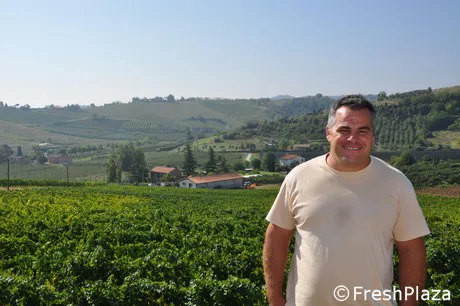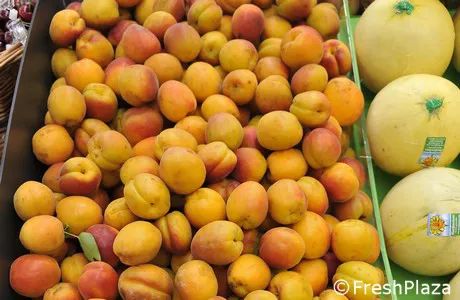
Enrico Giunchi
"For some varieties, the drop reached 80-90%. The problem is that it rained a lot during setting and temperatures were low. In case of organic orchards, the only thing we can do is intervene with sulphur but sometimes we could not even enter the orchards," explains owner Enrico Giunchi.

Apricots in a supermarket
Fabrizio Casadio grows 14 hectares of apricots using the integrated control technique. "I am quite satisfied with the production of Lady Cot, while we have registered a 40% drop of Faralia. Quality is average and depends a lot on the variety and location. Rain in June ruined a lot of fruit and the percentage of waste is considerable."
"There are too many varieties from California, Spain and France, i.e. selected in areas that are too different from ours. Some do not adapt well to our humid climate. Is it possible that Italian research cannot do better than that? I believe we should select varieties that are more suitable for our area."
